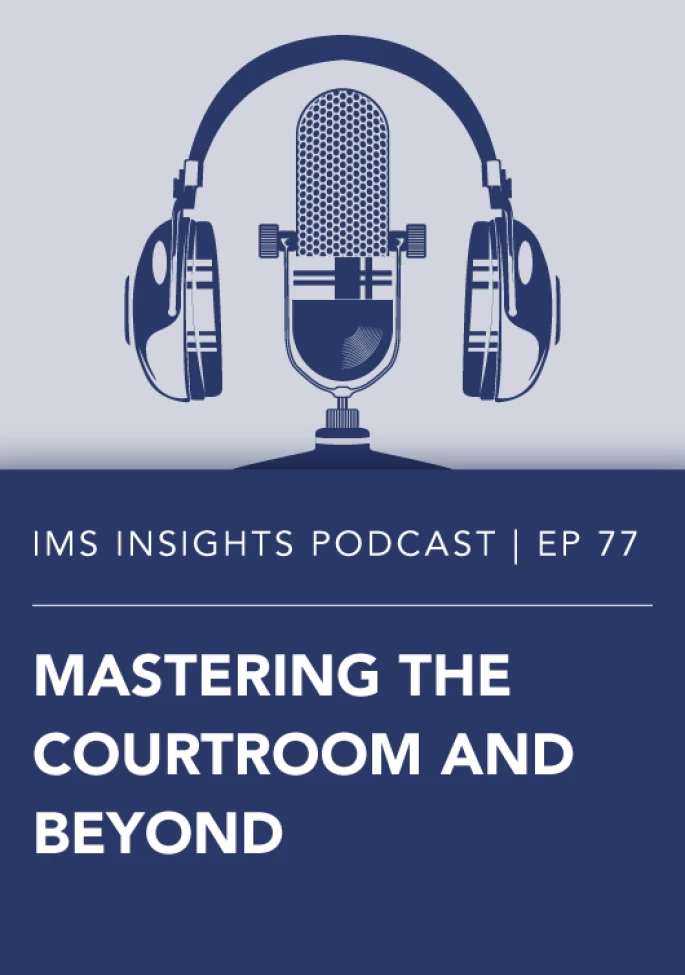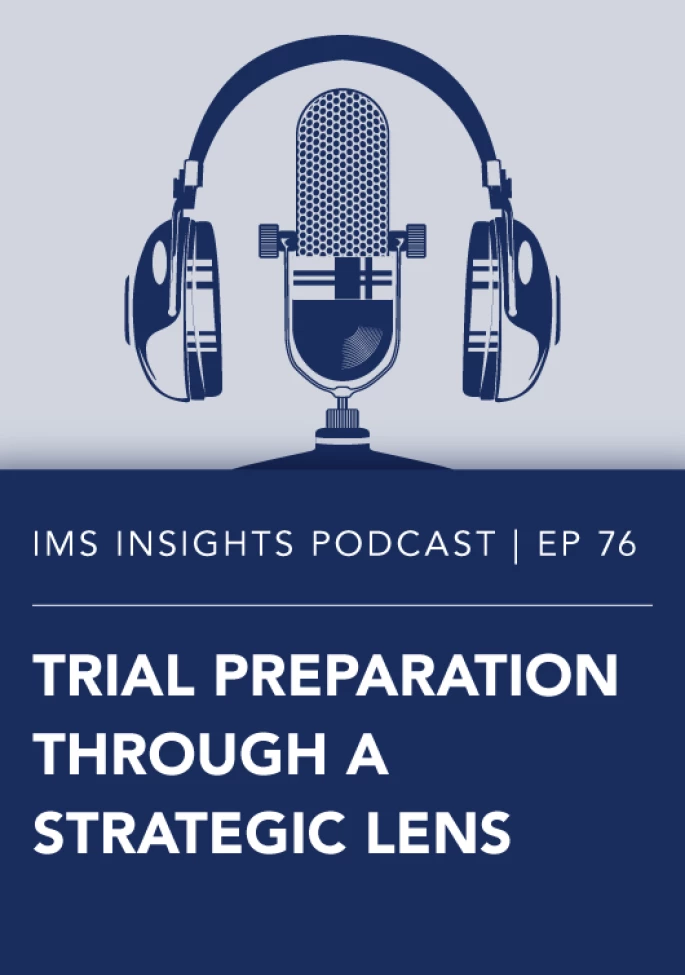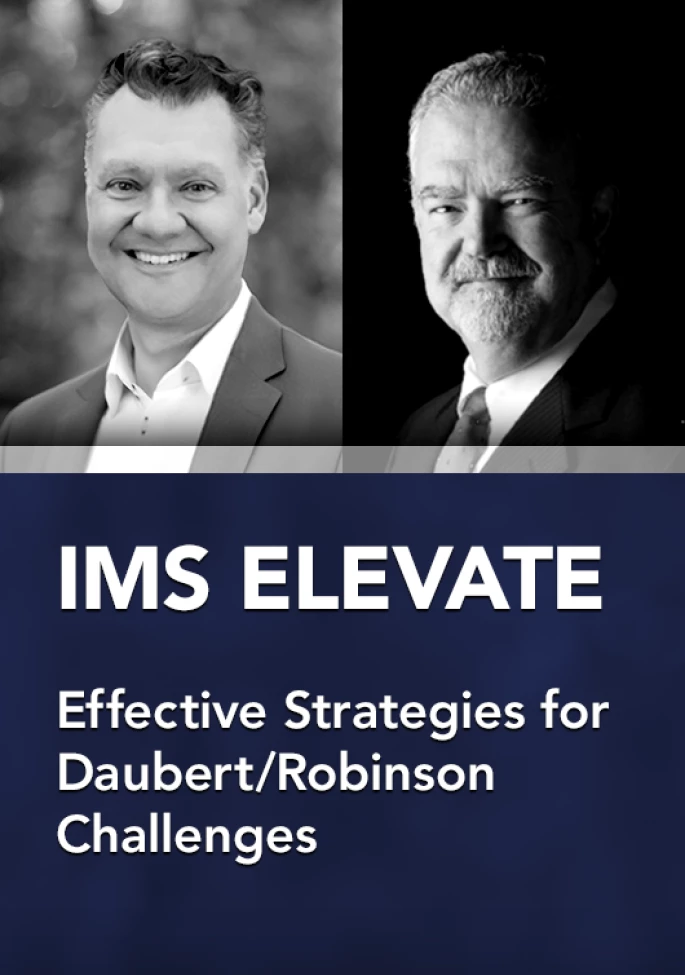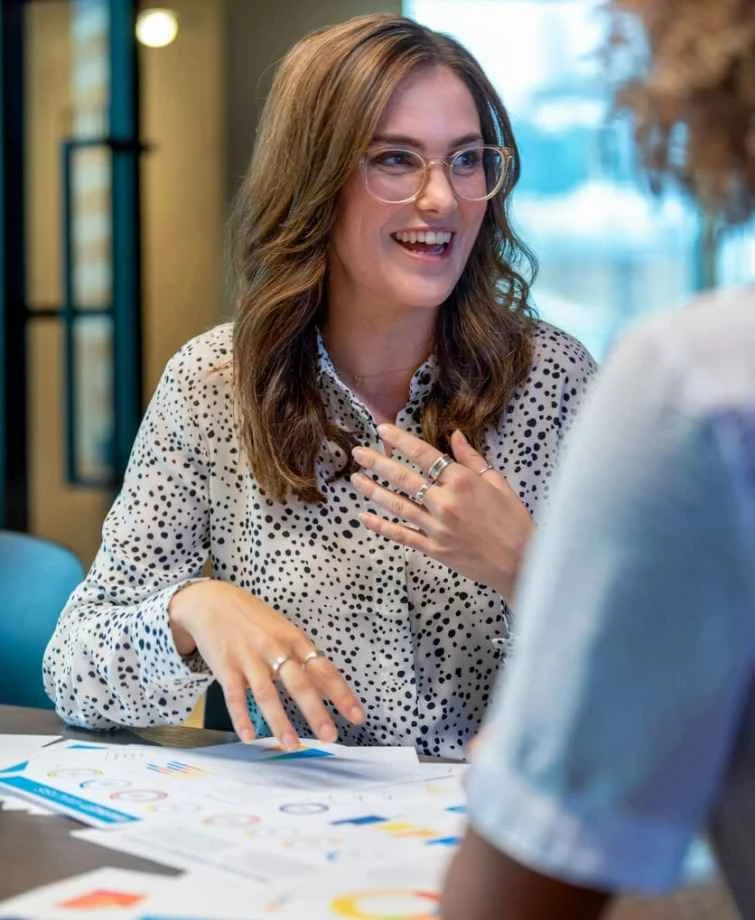Adam Bloomberg (Intro): Welcome to the IMS Insights Podcast, where the nation’s leading experts in litigation trends share their insights.
Today, we’re excited to explore the topic of expert witness admissibility and the evolution of Daubert/Robinson Challenges with a true pioneer in the field. Larry Cotten of Cotten Schmidt is a 46-year veteran trial lawyer based in Fort Worth, Texas. Larry was the first litigator to successfully challenge an expert witness under what’s known in Texas as a Robinson Challenge, and it’s based off the landmark DuPont versus Robinson Texas Supreme Court case in 1995, which adopted the Daubert standard for admissibility of expert testimony under Texas Rule of Evidence 702.
Chris Dominic: Hey, thanks, Adam. Larry, welcome.
Larry Cotten: Thank you. Thank you.
Chris Dominic: Great to have you here. Hey, can we start off by you telling us a little bit about what was at issue in the Robinson case all those years ago?
Larry Cotten: Absolutely. This was in the early ‘90s, and there was a series of lawsuits across the country brought against DuPont with claims that a DuPont product, an agricultural product called Benlate, which was a fungicide, was doing harm to plants. It started off with ornamental plants, and these were commercial operations that sold the ornamental plants. The plaintiffs' bar had hired a witness out of Oklahoma State by the name of Carl Whitcomb, a PhD horticulturist. Carl Whitcomb served as the expert witness in all these cases that were brought in multiple states and then eventually to Texas.
Chris Dominic: OK, so that was 30 years ago, right? Or 30-ish years ago.
Larry Cotten: Yes.
Chris Dominic: OK, I looked this up. It's been cited over 1,600 times in the appeals court. It's got to be more in the trial courts, right? What are some of the strategies that you now consider in a Robinson challenge? And correct me if I'm wrong, but Robinson's largely based on Daubert, right?
Larry Cotten: Exactly. So, in a lot of ways, this is going to apply to Daubert and Robinson. It was the Daubert case that brought to my attention that when that case came out, I read it and I immediately thought, well, let me look at the federal rule 702, and let's look at the state rule, Texas Rule 702. They weren't quite identical, but they're extremely close. So, I thought it might have application to assist us in the defense of DuPont. In that case, I used the Daubert case as sort of a template for how to go at Dr. Whitcomb.
Chris Dominic: I get it. OK, so maybe let's just take this from both sides then. Let's go to your advice. If you're the proponent of the expert, what approach do you take? What's your general strategy?
Larry Cotten: Well, I think it's important that the very first thing you do when you identify your expert witness, and I understand IMS actually serves to help provide expert witnesses. You need to be sure and find someone that's in the right field. That's very, very important. And you need to not just rely upon the fact that they have that expertise and say, OK, here's my facts. You know, go ahead and prepare a report. You need to first make sure that they know the legal side of it as well as the scientific and factual side of it. So, you want to sit down with them and make sure that they're prepared to be able to address all of the aspects where they may be challenged in the future.
Chris Dominic: Absolutely. OK, so what if you flip it over? What if you're now on the other side and you got to get an attack strategy going?
Larry Cotten: OK, I think the most important thing you do there is you do a lot of homework. You get as much information about that expert witness on the other side that you can get. You try to find out the fact our rules in Texas require the other side to provide for the expert witness the last four years where they've given deposition testimony or trial testimony. So that can provide you with a lot of fodder to consider ammunition, if you will, that you can use against them because of the positions they've taken in the past. So that's very helpful. As we did in the Robinson case, you want to go through all when you eventually take the deposition of the other side's expert, you want to go through all those factors to see if they've really addressed them or not.
Chris Dominic: Yeah, that makes a lot of sense. I was just thinking about how that transitions into things that we both work on, things like preparing the witness. One of the things that's really essential in these situations is how do you make sure that the communication from this individual, if it's your, let's flip back to it's your person, right? It's all right, you're sponsoring them, you want them to be qualified. They need to come across a particular way. What are some of the things that you feel are important in that preparation session?
Larry Cotten: I think it's extremely important that you do that in person. We rely so much on telephone conversations and communications and Zoom and things like that. It's better if you're in person, develop a relationship with that expert, develop if you can, a sense of trust between the two of you. And then you, I think they're more receptive to, they know a whole lot more about their field than I'm going to ever know. OK, so I can trust them to be able to demonstrate that. But what I want to make sure is that they're comfortable with my advice, which is to hear there are some things that you need to be concerned about technically in the courtroom, or you may never get to testify in front of the jury, right?
Chris Dominic: Absolutely. And I'm curious, I mean, early in a case that has the likelihood of being Robinson challenged. Just this is going back a little bit. When do you do the expert search? Like, let's talk about the litigation life cycle. What's your timing around that?
Larry Cotten: Well, if you're on the plaintiff side of a case, that's going to be one of the very earliest things that you do maybe even prior to your, you know, filing your lawsuit. In fact, I suspect most of the time it's well prior to filing the lawsuit. Almost every case today, there are exceptions to this, but almost every case is going to have some expert testimony in it. Sometimes the law requires it. You just have to have it. And sometimes you want it because the expert can be very persuasive. And so, I think you can't start early enough to identify who it is that you need on your side to help advocate for your case.
Chris Dominic: OK, I'm curious about judges. Tell me a little bit about your approach. Do you find that judges are, it's so important that you get to know who they are so that you know how to approach them? Or do you find that if you do certain kinds of preparation techniques with the experts, the judges tend to respond pretty similarly? Like where do you stand on all that?
Larry Cotten: That's a really, really good question. Just like the research you can do about your own expert or the expert on the other side. A lot of research is available to you today regarding your judges. You can make some determination as to whether or not they're inclined to grant these type motions. There are some judges that I've been before who will not grant a Robinson challenge. They just won't. They want the case, everything to go before the jury. And then there are others who realize if this witness is not going to pass muster, if there's an appeal in this case, why go through it all, go to all that trouble and expense when on the other side, if an appeal is made and a challenge is made to whether or not that expert should have testified, the appellate court says no and they reverse and render the case. So you want to avoid that if you can. So this is sort of a tell. I've never gone into a courtroom where there's a, where I've got a Robinson challenge and told the judge that that was my case.
Chris Dominic: Interesting.
Larry Cotten: And one of the reasons for that is the judges became gatekeepers. They didn't have that role until the Supreme Court adopted Robinson and adopted the Daubert, basically the Daubert template. And so, it put the judges to a whole lot more work. So, I didn't want to tell them I'm responsible for putting them into a whole lot more work.
Chris Dominic: Makes a lot of sense. OK, since we're on this topic of judges, I'd like to talk about something that comes up in my world and I want your thoughts on it. Sometimes I'll be working with an attorney or someone from the jury consulting team will be working with an attorney, will be preparing a witness, and we'll get the expert demonstratives. And sometimes they're impenetrable. They're just the only person who's going to understand them is somebody in the academic department of that expert, right? And sometimes what they'll say is, well, I think they're fine because it's just for the judge. And I'll have to be the one sometimes or one of the other jury consultants will have to say, you know, maybe we need to do a little work on these. Have you found that to be true as well? Have you had that experience somewhat?
Larry Cotten: You know, when you have a Robinson hearing, it's very, very important that whether if you're the proponent, that you bring your witness to that hearing and put on the testimony for the judge and be there available not only to answer the question that the lawyers might have for them, but also so the judge could ask questions as well and satisfy that judge that they do meet all of the criteria to allow them to testify. So as much as sometimes we're talking about hyper-technical issues with regard to science or engineering or whatever the topic may be that the expert is addressing. And if you've got demonstratives that help to translate what might be otherwise over someone's head in a way that you can see it, I think that's very helpful. It's very important. And you're right, you don't necessarily want the expert himself, [they] may not be the best communicator of that concept. It's better to have someone that knows how to get that message across.
Chris Dominic: Larry, thanks so much for joining us today. This has been great. We really appreciate it. And thanks to everybody else who tuned in today. It's all yours, Adam.
Adam Bloomberg (Outro): IMS has served trusted law firms and corporations worldwide for more than 30 years and over 65,000 cases. As a strategic partner for the full case life cycle, our integrated teams provide specialized advisory support, expert witness services, litigation consulting, visual advocacy, and presentation technology to elevate strategies and protect hard-earned reputations. Learn more at imslegal.com.








